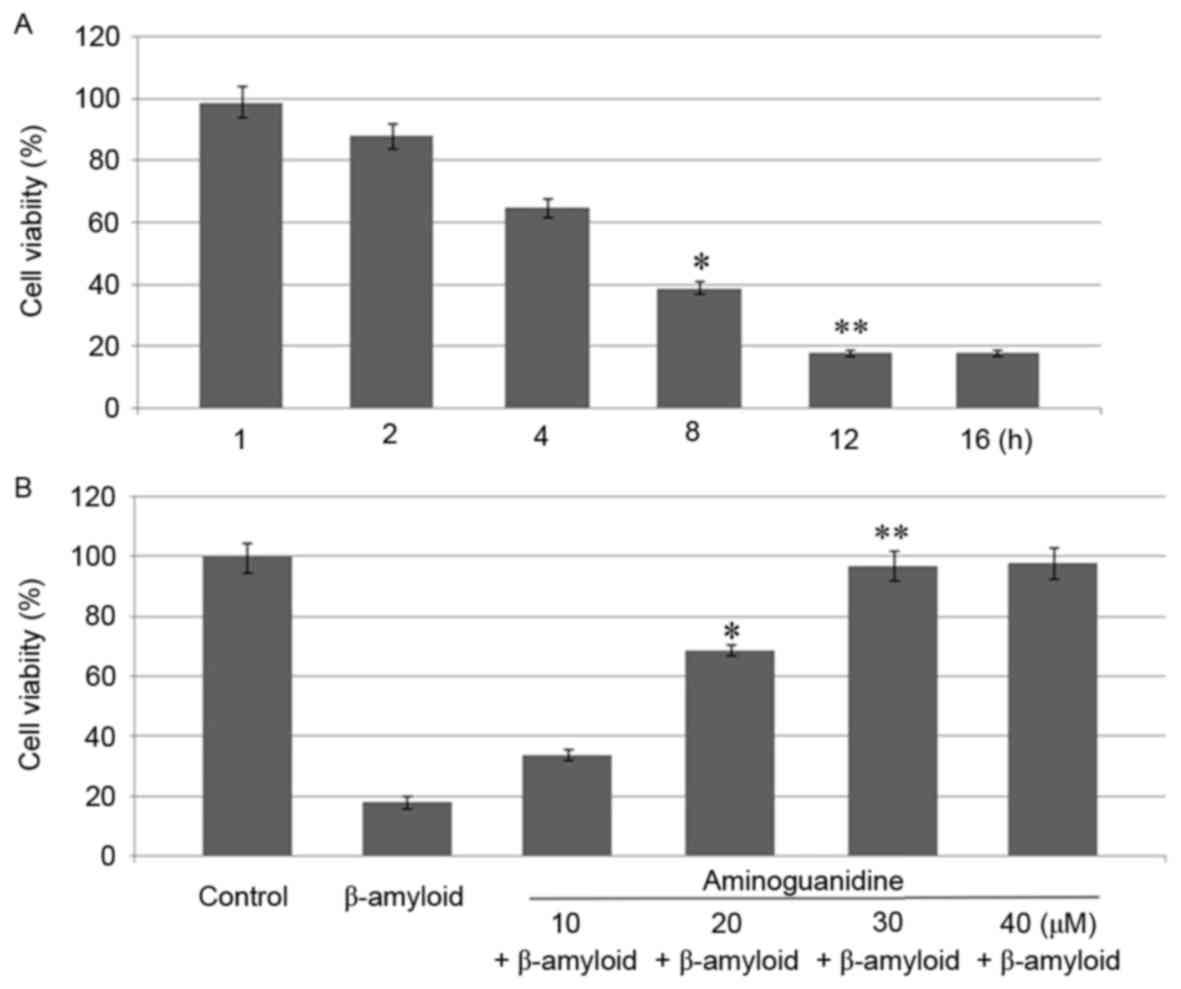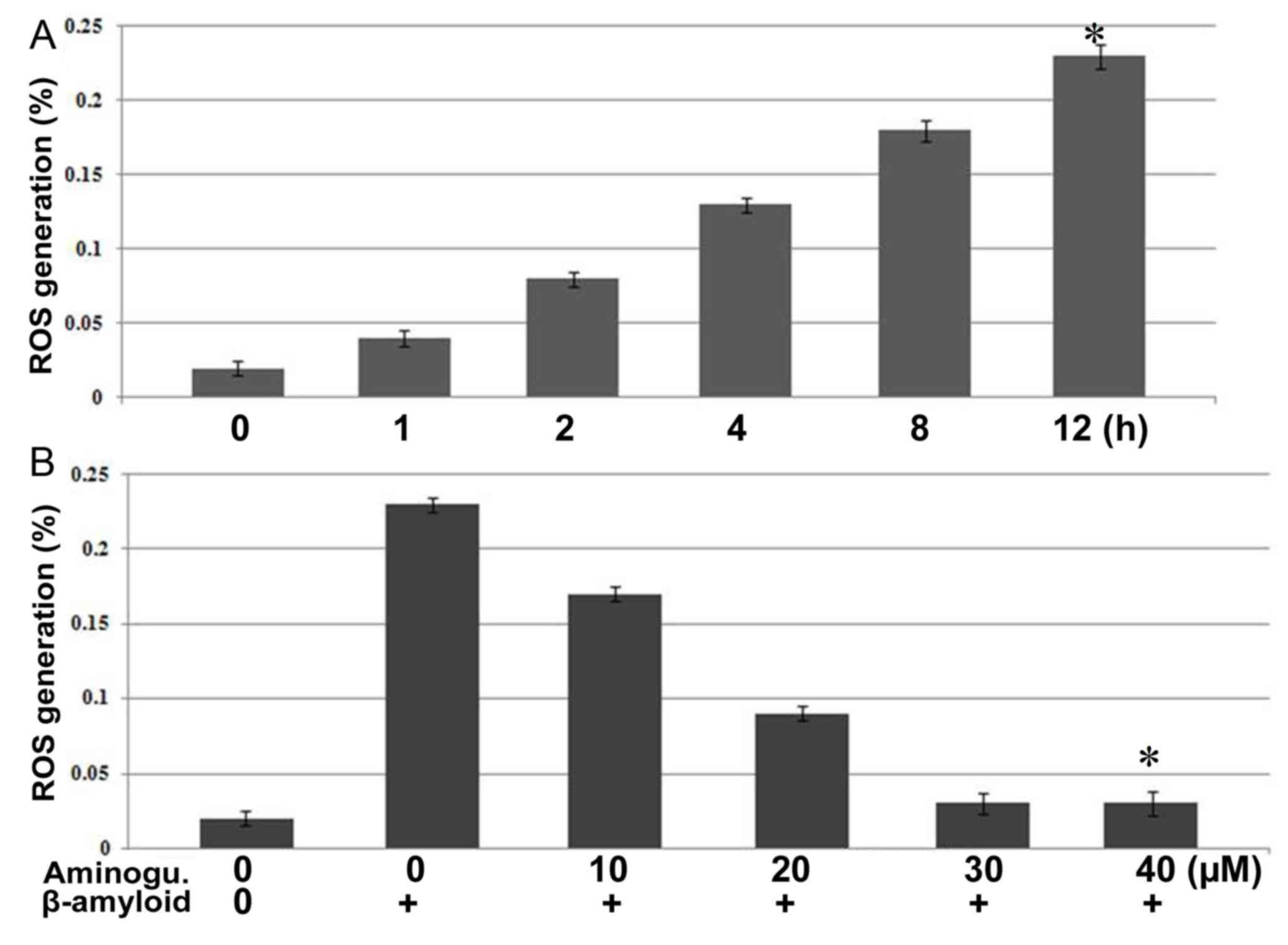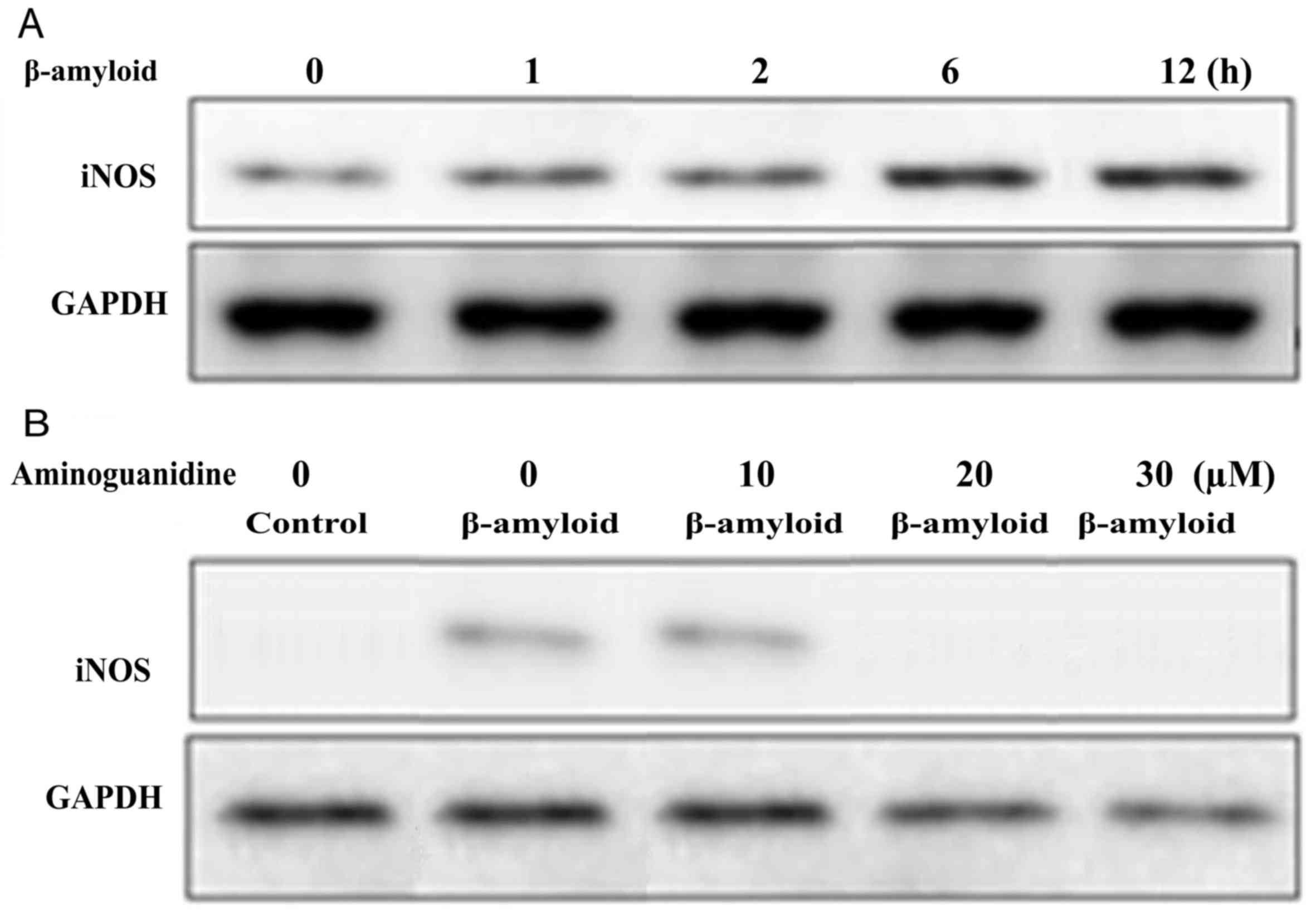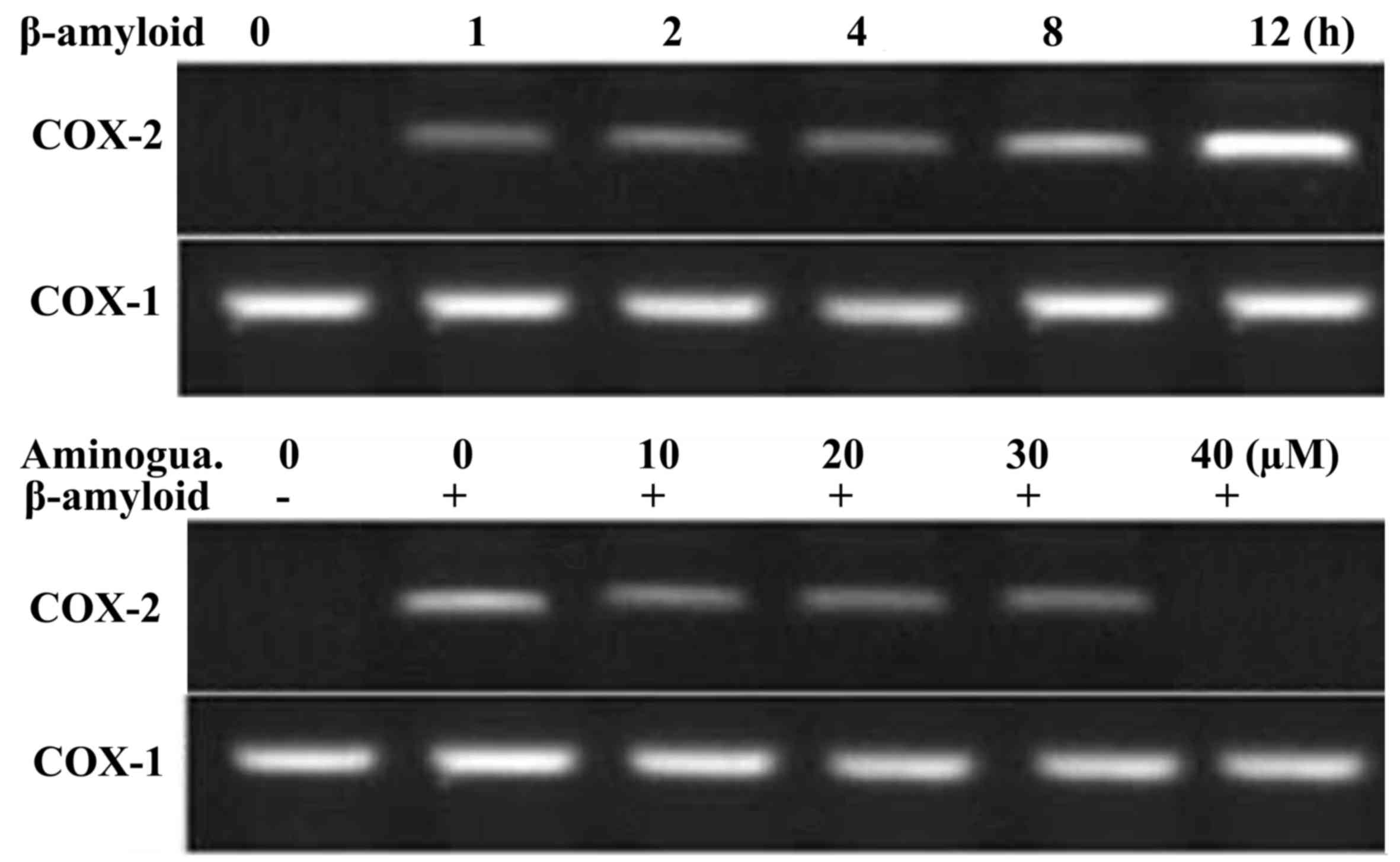|
1
|
Lewczuk P, Kamrowski-Kruck H, Peters O,
Heuser I, Jessen F, Popp J, Bürger K, Hampel H, Frölich L, Wolf S,
et al: Soluble amyloid precursor proteins in the cerebrospinal
fluid as novel potential biomarkers of Alzheimer's disease: A
multicenter study. Mol Psychiatry. 15:138–145. 2010. View Article : Google Scholar : PubMed/NCBI
|
|
2
|
Weiner MW: Dementia in 2012: Further
insights into Alzheimer disease pathogenesis. Nat Rev Neurol.
2:65–66. 2013. View Article : Google Scholar
|
|
3
|
Tan L, Yu JT, Hu N and Tan L: Non-coding
RNAs in Alzheimer's disease. Mol Neurobiol. 47:382–393. 2013.
View Article : Google Scholar : PubMed/NCBI
|
|
4
|
Eckert A, Keil U, Marques CA, Bonert A,
Frey C, Schüssel K and Müller WE: Mitochondrial dysfunction,
apoptotic cell death, and Alzheimer's disease. Biochem Pharmacol.
66:1627–1634. 2003. View Article : Google Scholar : PubMed/NCBI
|
|
5
|
Canevari L, Abramov AY and Duchen MR:
Toxicity of amyloid beta peptide: Tales of calcium, mitochondria,
and oxidative stress. Neurochem Res. 29:637–650. 2004. View Article : Google Scholar : PubMed/NCBI
|
|
6
|
Grundman M, Grundman M and Delaney P:
Antioxidant strategies for Alzheimer's disease. Proc Nutr Soc.
61:191–202. 2002; View Article : Google Scholar : PubMed/NCBI
|
|
7
|
Komatsu M and Hiramatsu M: The efficacy of
an antioxidant cocktail on lipid peroxide level and superoxide
dismutase activity in aged rat brain and DNA damage in iron-induced
epileptogenic foci. Toxicology. 148:143–148. 2000. View Article : Google Scholar : PubMed/NCBI
|
|
8
|
Bastianetto S, Zheng WH and Quirion R:
Neuroprotective abilities of resveratrol and other red wine
constituents against nitric oxide-related toxicity in cultured
hippocampal neurons. Br J Pharmacol. 131:711–720. 2000. View Article : Google Scholar : PubMed/NCBI
|
|
9
|
Abdel-Rahman E and Bolto WK: Pimagedine: A
novel therapy for diabetic nephropathy. Expert Opin Investig Drugs.
11:565–574. 2002. View Article : Google Scholar : PubMed/NCBI
|
|
10
|
Di F, Yan-Ting G, Hui L, Tao T, Zai-Hua X,
Xue-Ying S, Hong-Li X and Yun-Jie W: Role of aminoguanidine in
brain protection in surgical brain injury in rat. Neurosci Let.
448:204–207. 2008. View Article : Google Scholar
|
|
11
|
Sugimoto K and Iadecola C: Effects of
aminoguanidine on cerebral ischemia in mice: Comparison between
mice with and without inducible nitric oxide synthase gene.
Neurosci Lett. 331:25–28. 2002. View Article : Google Scholar : PubMed/NCBI
|
|
12
|
Louin G, Marchand-Verrecchia C, Palmier B,
Plotkine M and Jafarian-Tehrani M: Selective inhibition of
inducible nitric oxide synthase reduces neurological deficit but
not cerebral edema following traumatic brain injury.
Neuropharmacology. 50:182–190. 2006. View Article : Google Scholar : PubMed/NCBI
|
|
13
|
Pearse DD, Chatzipanteli K, Marcillo AE,
Bunge MB and Dietrich WD: Comparison of iNOS inhibition by
antisense and pharmacological inhibitors after spinal cord injury.
J Neuropathol Exp Neurol. 62:1096–1107. 2003. View Article : Google Scholar : PubMed/NCBI
|
|
14
|
Hardy JA and Higgins GA: Alzheimer's
disease: The amyloid cascade hypothesis. Science. 256:184–185.
1992. View Article : Google Scholar : PubMed/NCBI
|
|
15
|
Yankner BA, Dawes LR, Fisher S,
Villa-Komaroff L, Oster-Granite ML and Neve RL: Neurotoxicity of a
fragment of the amyloid precursor associated with Alzheimer's
disease. Science. 245:417–420. 1989. View Article : Google Scholar : PubMed/NCBI
|
|
16
|
Raivich G, Jones LL, Werner A, Bluthmann
H, Doetschmann T and Kreutzberg GW: Molecular signals for glial
activation: Pro- and anti-inflammatory cytokines in the injured
brain. Acta Neurochir Suppl. 73:S21–S30. 1999.
|
|
17
|
Pasinetti GM: From epidemiology to
therapeutic trials with anti-inflammatory drugs in Alzheimer's
disease: The role of NSAIDs and cyclooxygenase in beta-amyloidosis
and clinical dementia. J Alzheimers Dis. 4:435–445. 2002.
View Article : Google Scholar : PubMed/NCBI
|
|
18
|
Montine TJ, Sidell KR, Crews BC,
Markesbery WR, Marnett LJ, Roberts LJ and Morrow JD: Elevated CSF
prostaglandin E2 levels in patients with probable AD. Neurology.
53:1495–1498. 1999. View Article : Google Scholar : PubMed/NCBI
|
|
19
|
Duncan AJ and Heales SJ: Nitric oxide and
neurological disorders. Mol Aspects Med. 26:67–96. 2005. View Article : Google Scholar : PubMed/NCBI
|
|
20
|
MacMicking J, Xie QW and Nathan C: Nitric
oxide and macrophage function. Annu Rev Immunol. 15:323–350. 1997.
View Article : Google Scholar : PubMed/NCBI
|
|
21
|
Terai K, Matsuo A and McGeer PL:
Enhancement of immunoreactivity for NF-kappa B in the hippocampal
formation and cerebral cortex of Alzheimer's disease. Brain Res.
735:159–168. 1996. View Article : Google Scholar : PubMed/NCBI
|
|
22
|
Akama KT and van Eldik LJ: Beta-amyloid
stimulation of inducible nitric-oxide synthase in astrocytes is
interleukin-1beta- and tumor necrosis factor-alpha
(TNFalpha)-dependent, and involves a TNFalpha receptor-associated
factor- and NFkappaB-inducing kinase-dependent signaling mechanism.
J Biol Chem. 275:7918–7924. 2000. View Article : Google Scholar : PubMed/NCBI
|




















